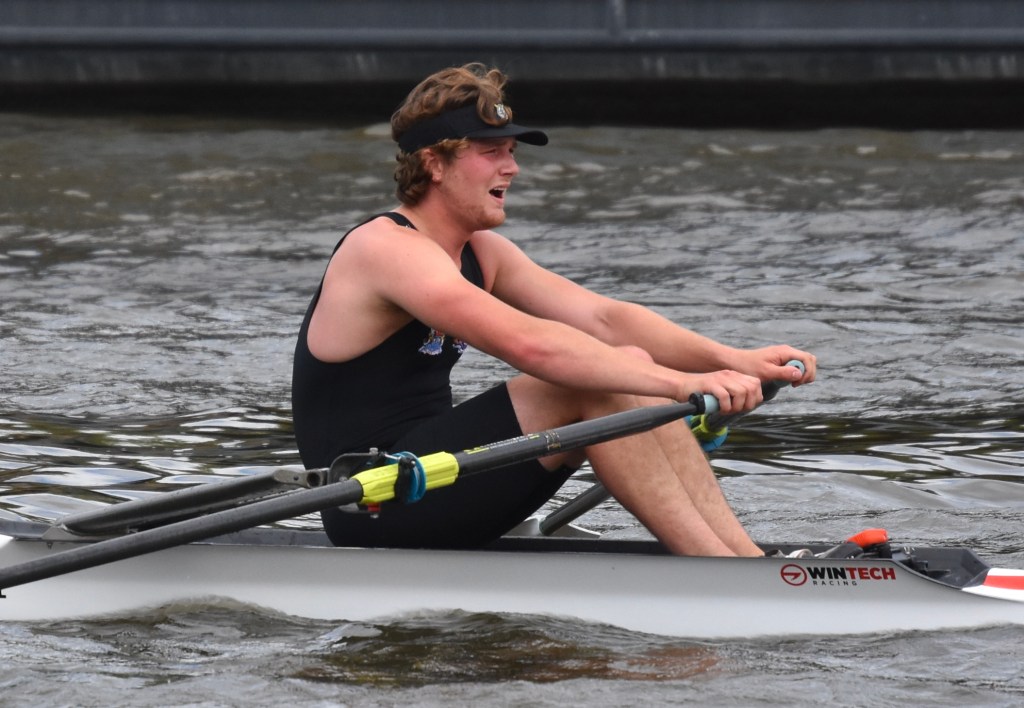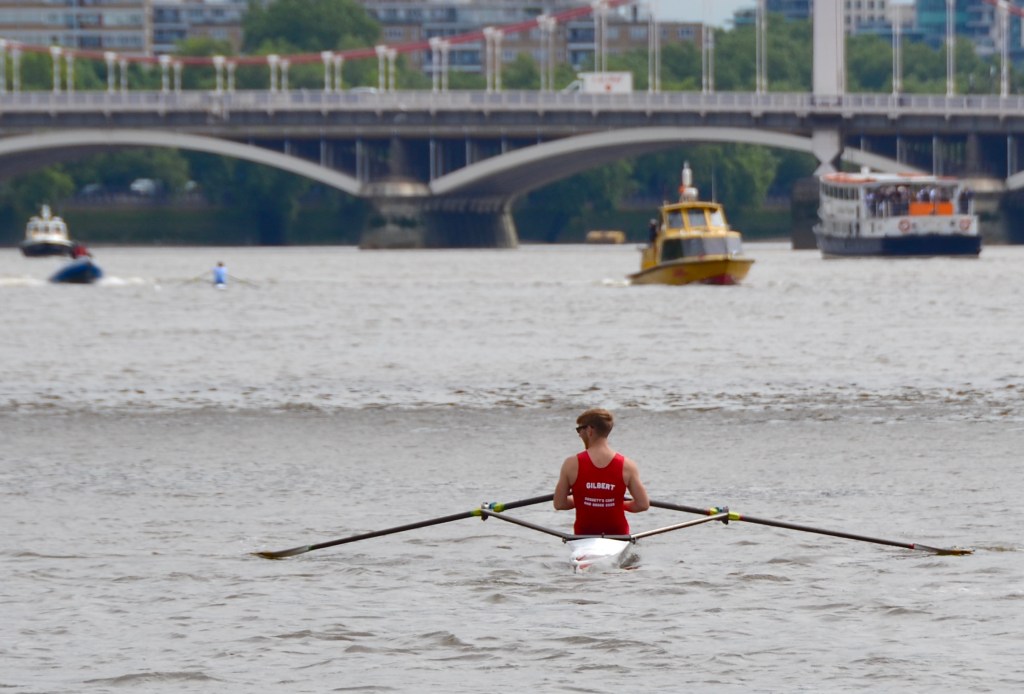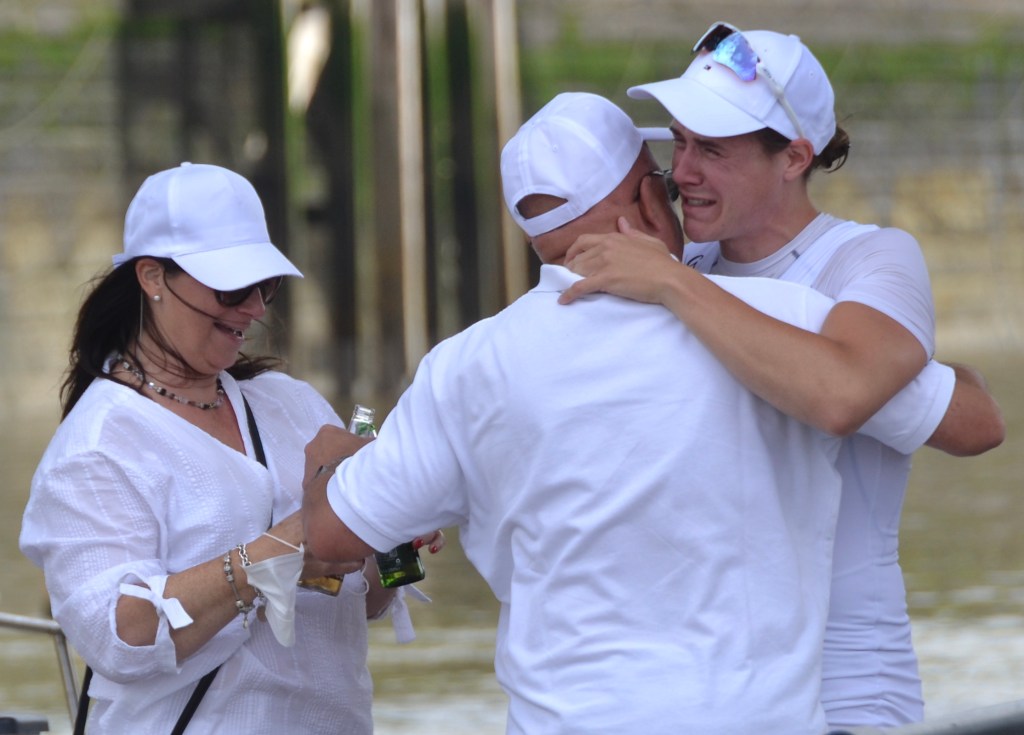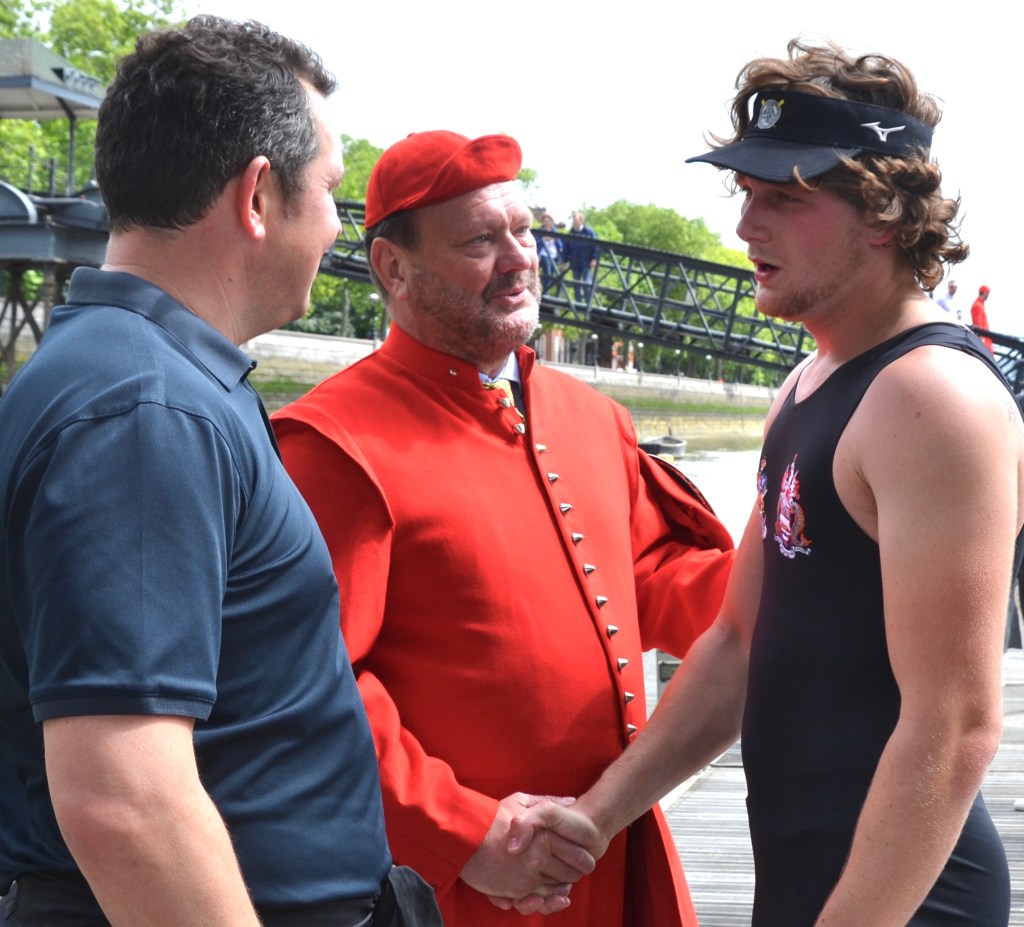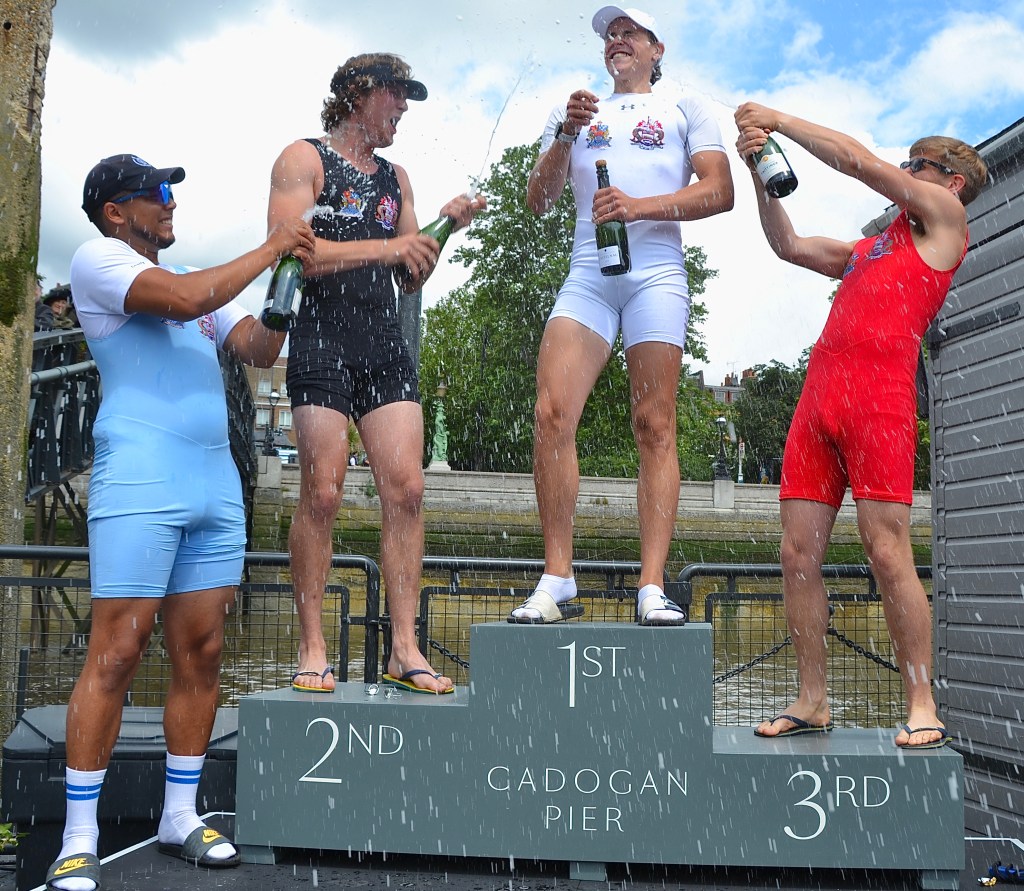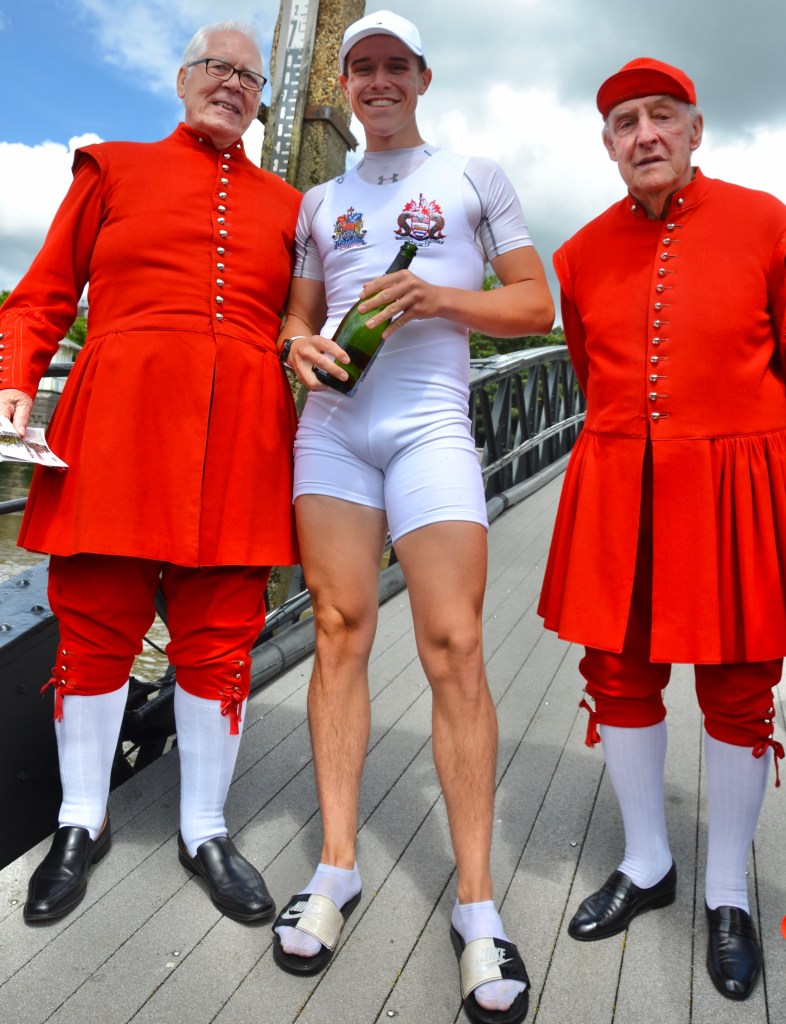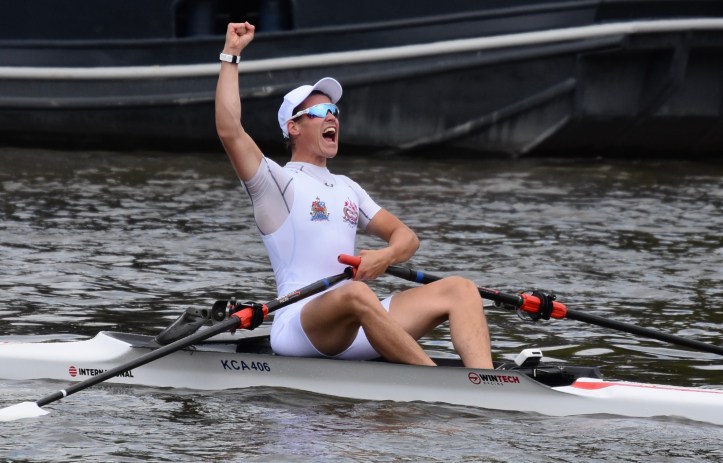
27 June 2021
By Tim Koch
Tim Koch follows in the wake of history.
In my preview of the 306th race for the Doggett’s Coat and Badge, I did not need particularly great insight when I wrote that, “The favourite should be Berry – though he would be wise to be worried by Carter-Miller.” While it is true that second time competitor James Berry won in the end, he was “worried” – or perhaps even frightened – to a far greater degree than I thought may happen when the eventually second-placed new boy, Max Carter-Miller, lead the 7,400-metre race for most of its first 3,000 metres. This, combined with two other determined competitors and unexpected beguine weather and water conditions made for a great day.

Robert ‘Bobby’ Prentice (Doggett’s 1973) is the Bargemaster to the Fishmongers’ Company and, as such, is ex-officio the race umpire. He and Martin Spencer were the first working watermen to win at Henley Royal Regatta (Double Sculls, 1976). Ken Dwan represented Britain at the Olympic Games in 1968 and 1972 and is a multiple Wingfield’s and Scullers Head winner. The Dwan family has the most living Doggett’s winners. Ken (1971) is the father of Nicholas (2002) and Robert (2004). Ken’s brother, John, won in 1977 as did John’s son, Merlin, in 2012. Ken’s mother and Jack (2017) and Patrick (2019) Keech’s paternal grandmother were sisters.
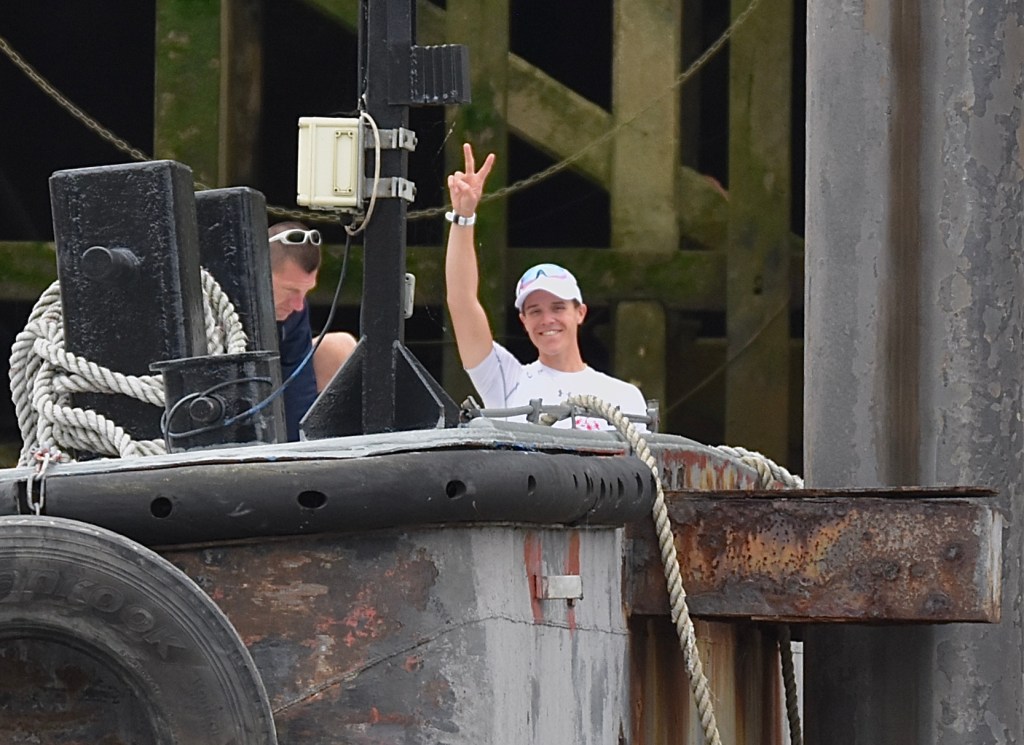
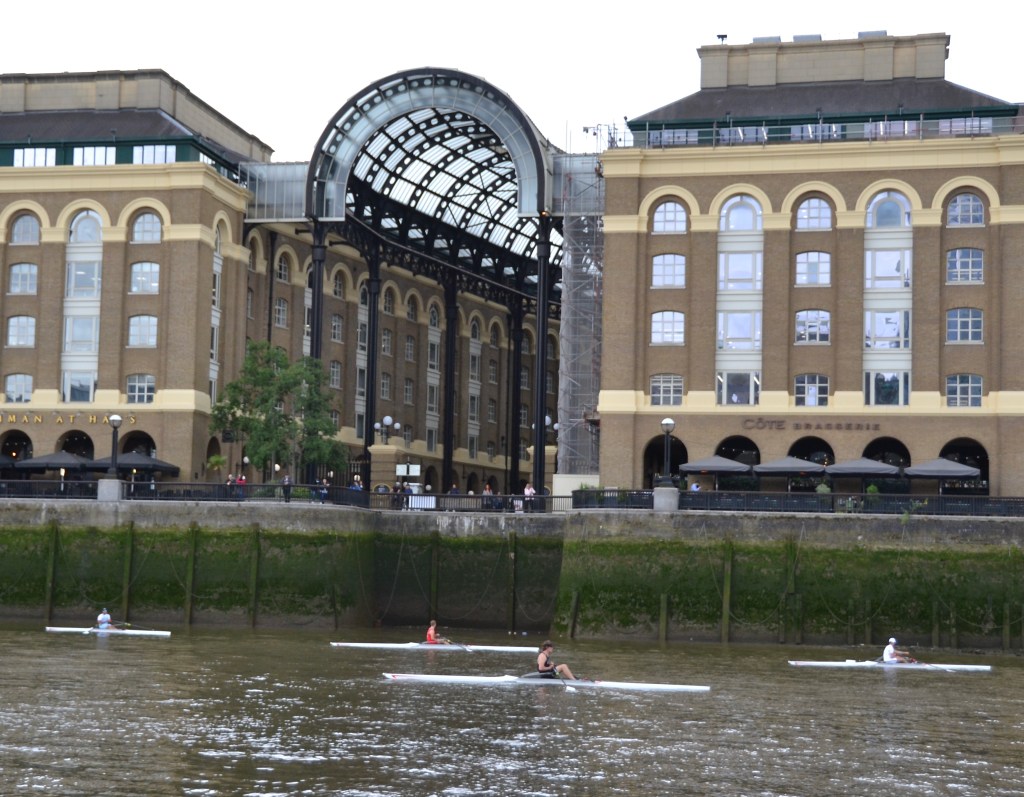


At 10.59, Umpire Prentice dropped his flag and the fine conditions allowed a good, clean start by all four scullers. Max Carter-Miller and James Berry immediately took the leading places, the live stream commentator, Robert Treharne Jones, suggesting that Berry was slightly in front and rating 30 strokes per minute (spm) before the first bridge on the course, Cannon Street Rail Bridge (250m into the race).
In the 150m between Cannon Street and Southwark bridges however, Berry moved right across from the north bank station to race virtually alongside Carter-Miller — who was now in the lead and who went through the second bridge, Southwark (400m), leading the quartet.

The placings of Carter-Miller closely followed by Berry and then, further back, Gilbert clinging to the south bank and then, at the rear, the very game but inexperienced Cherry sculling precariously in the middle of the river, continued under the Millennium Footbridge (700m), Blackfriars Rail Bridge (1,050m) and Blackfriars Road Bridge (1,150m).

In the 850m between Blackfriars Road Bridge and Waterloo Bridge (2,000m), the scullers can choose to go inside the string of barges moored near the south bank (which cuts the corner and has flatter but slower water) or stay in the middle of the river (with its faster though rougher water and greater distance). First, second and third placed Carter-Miller, Berry and Gilbert chose the inside while fourth placed Cherry took the middle. As the rather raw Coran Cherry survived the unsettled centre of the river, it is difficult not to speculate that, if one or the other of Berry or Carter-Miller had taken the fast middle stream, would they have gained an unassailable lead?


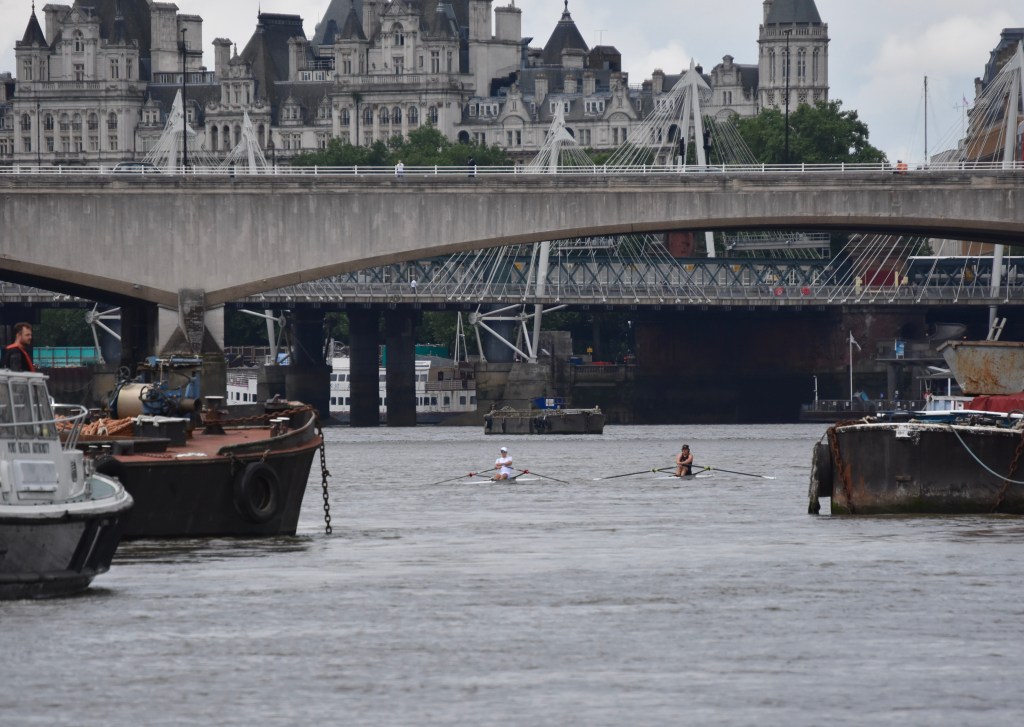
After Waterloo Bridge, about six minutes into the race, Umpire Prentice decided to overtake Cherry in order to keep in touch with the other three competitors.
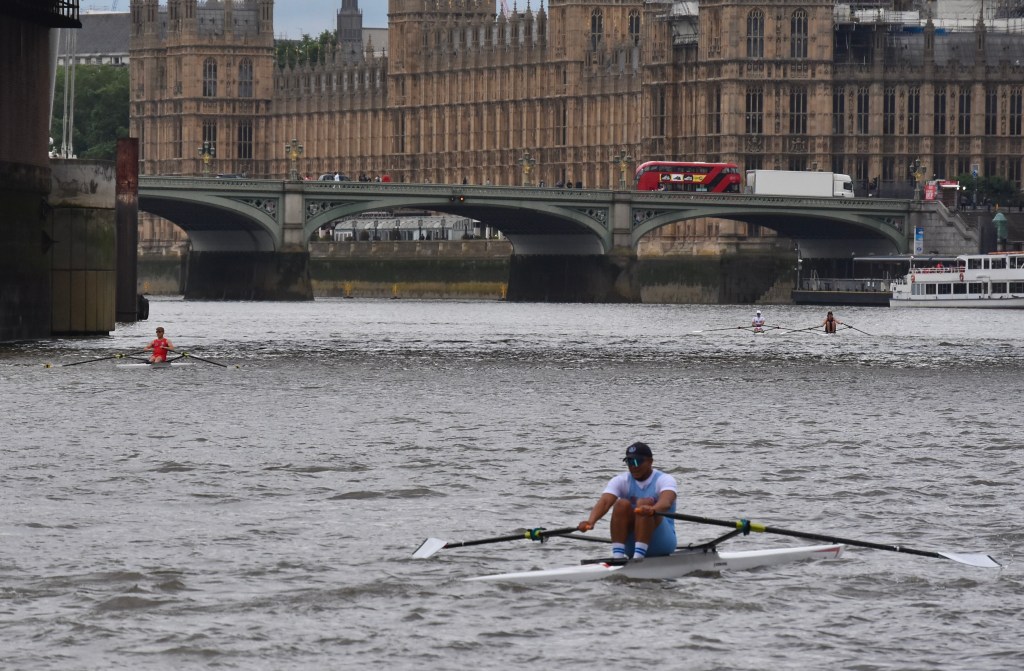
The order remained unchanged under the Golden Jubilee Bridges and Hungerford Bridge (2,350m) but, in the approach to perhaps the most photographic part of the course with the backdrop of the Houses of Parliament, things changed. At about nine-and-a-half minutes into the race, just before Westminster Bridge (2,950m) Berry finally broke Carter-Miller and took the lead.
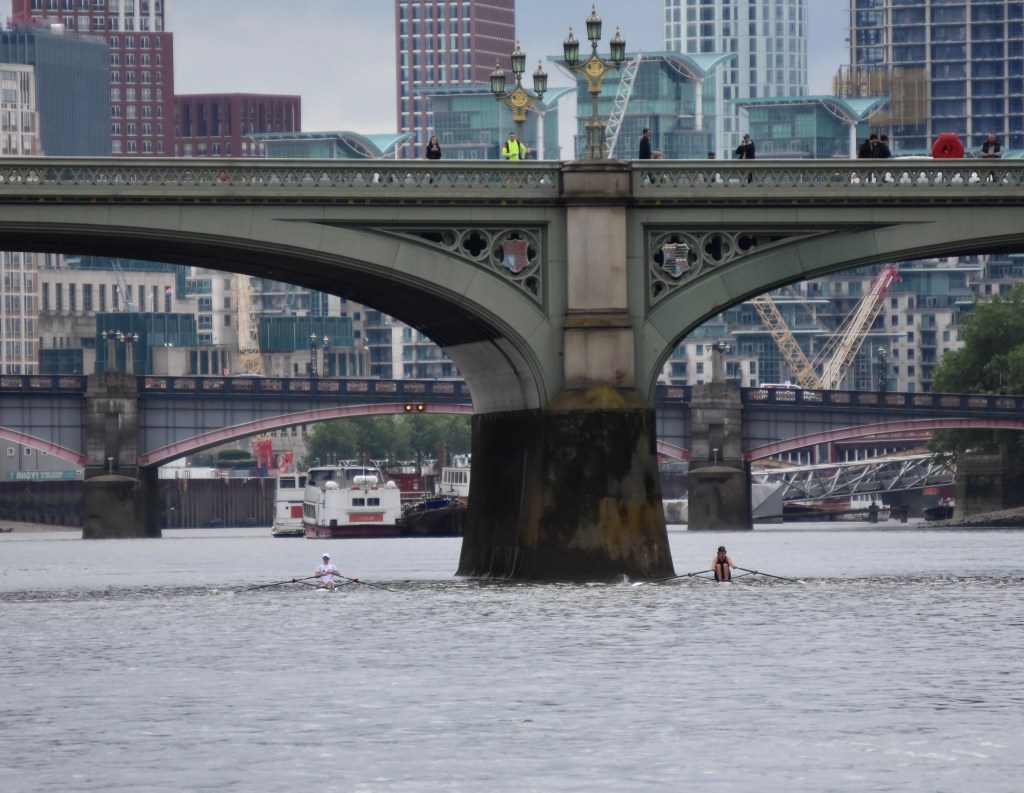
By the next bridge, Lambeth (3,650m), the approximate half-way point, Berry had visibly relaxed, lengthened out and went down to 24 spm and was slowly moving away from a pained Carter-Miller who was striking 22 spm and who suffered some erratic steering.
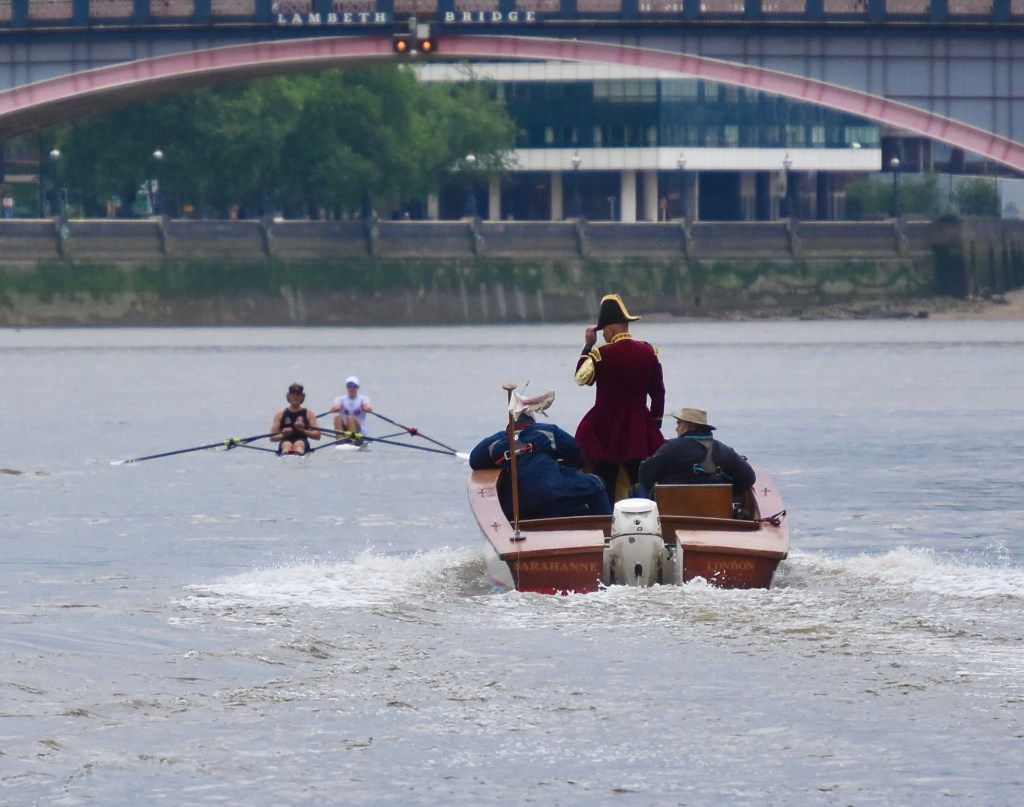

By Vauxhall Bridge (4,500m) the race was Berry’s to lose and when the sun came out as the old Battersea Power Station (5,900m) was passed, he may have thought that it was shining just on him.
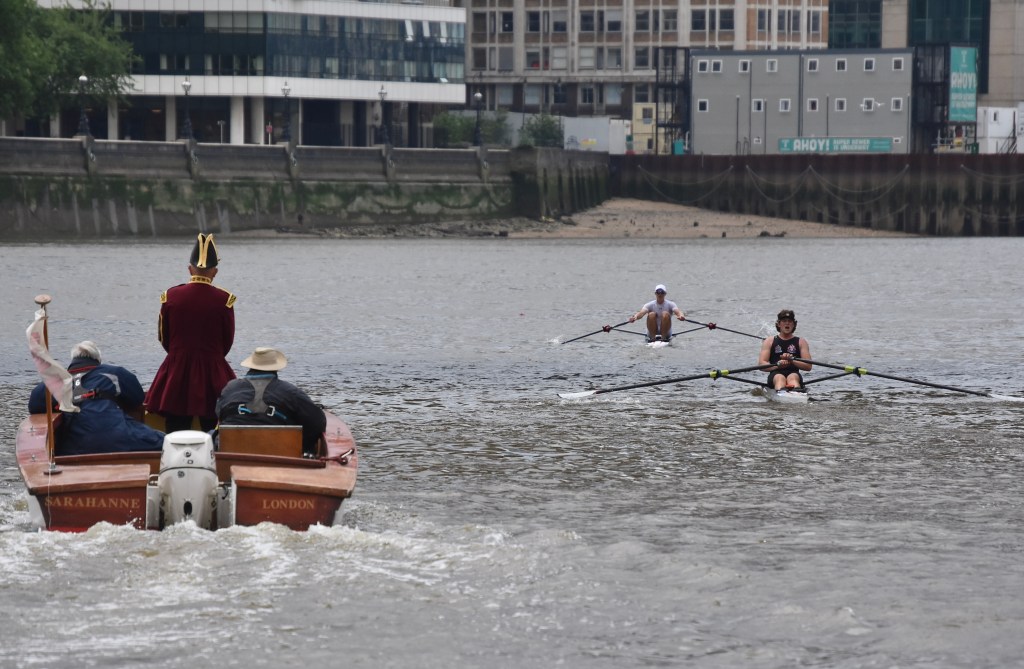

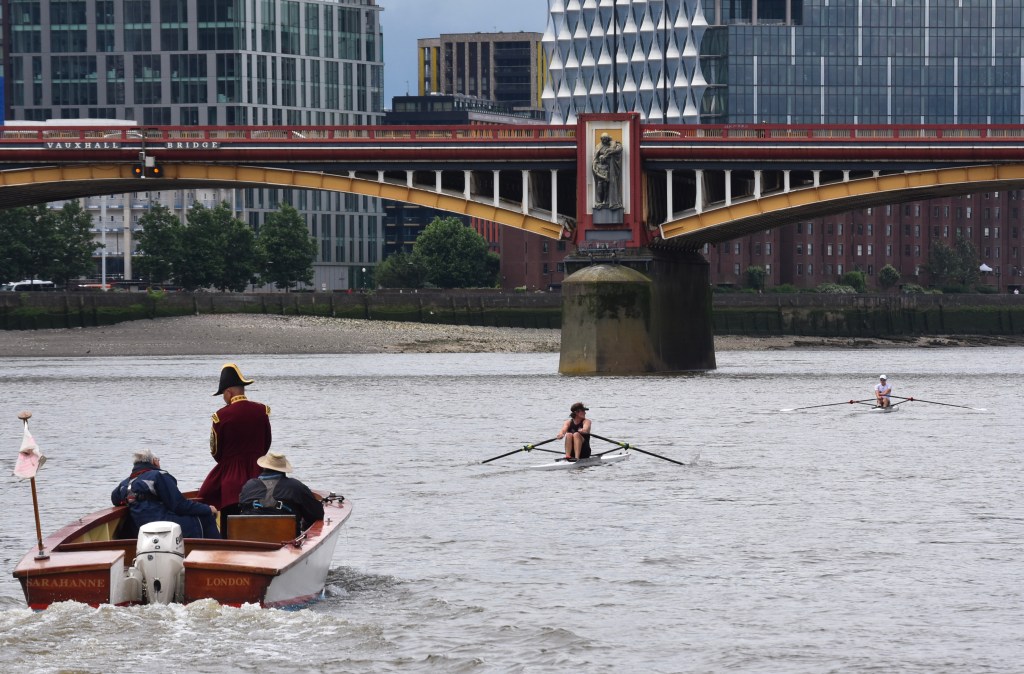
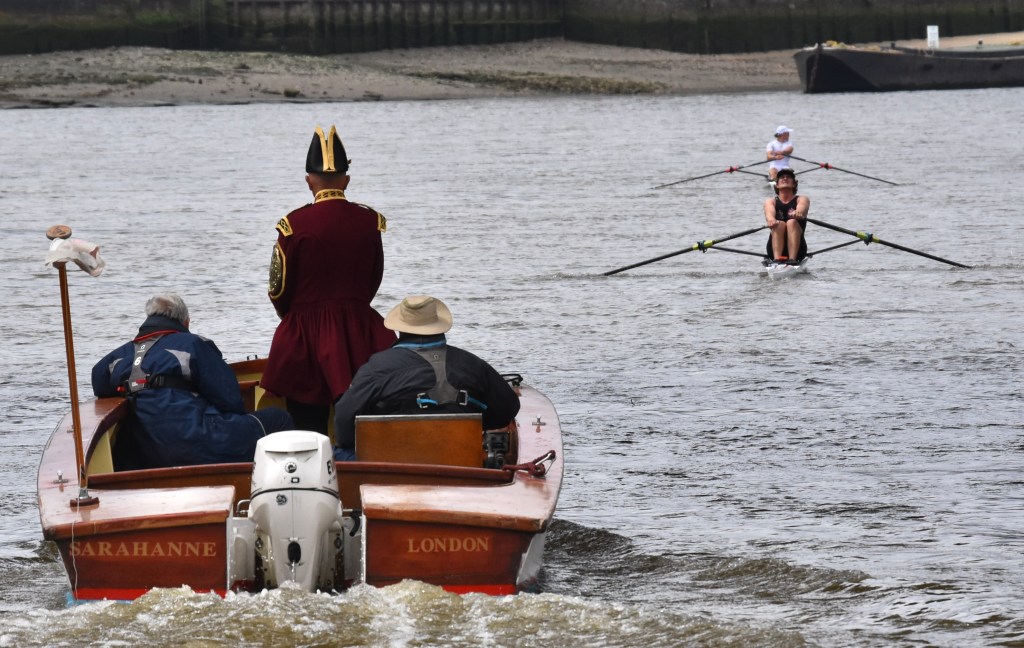
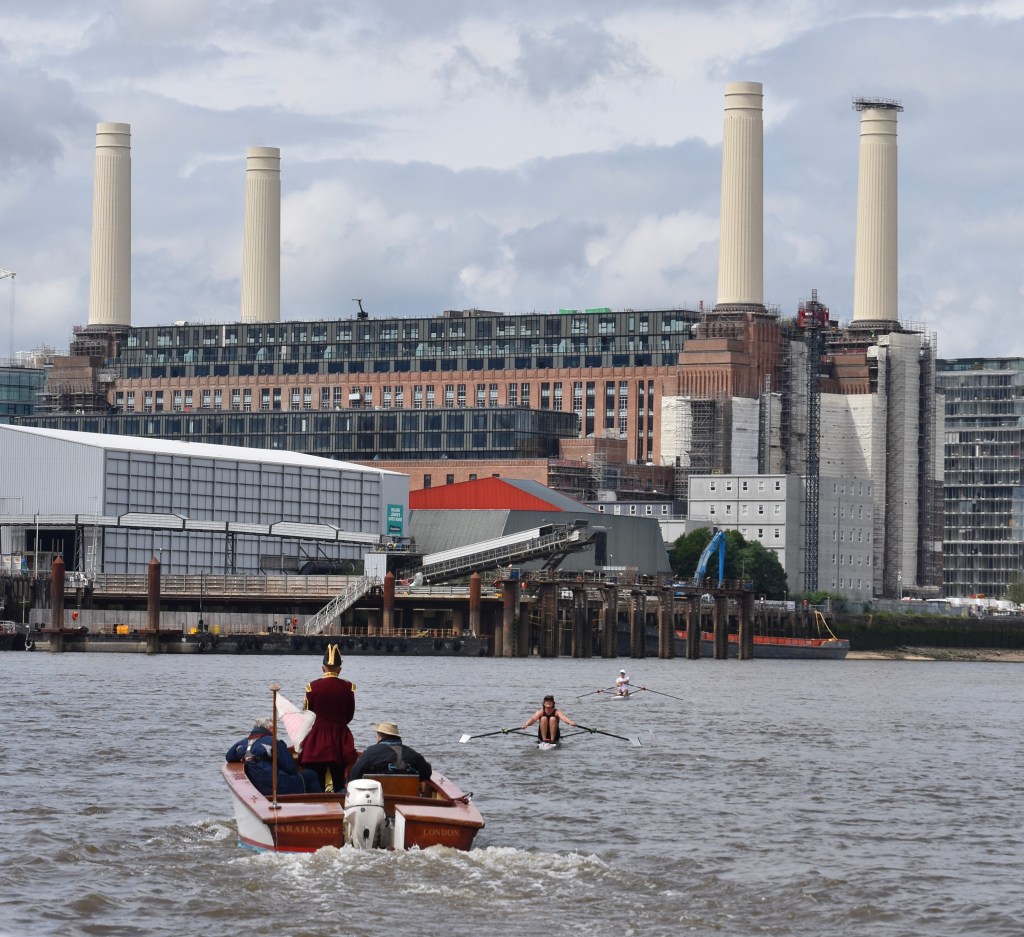


In the final straight stretch after the last bridge, Chelsea (6,300m), James Berry took the rate up to 27 spm for a “boathouse finish” and a time of 25 min 31 sec.
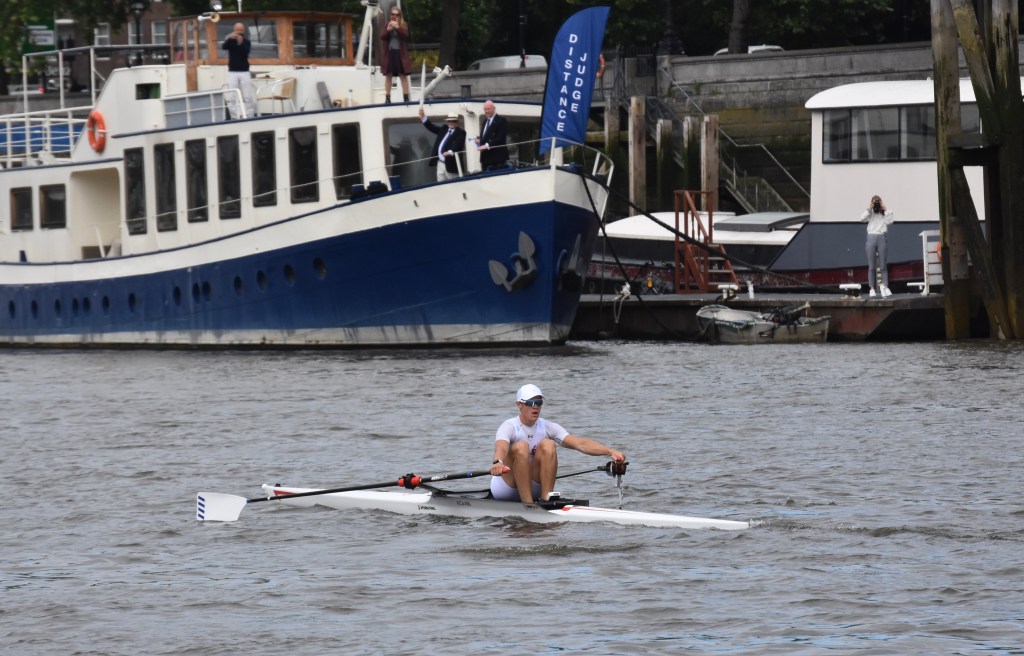
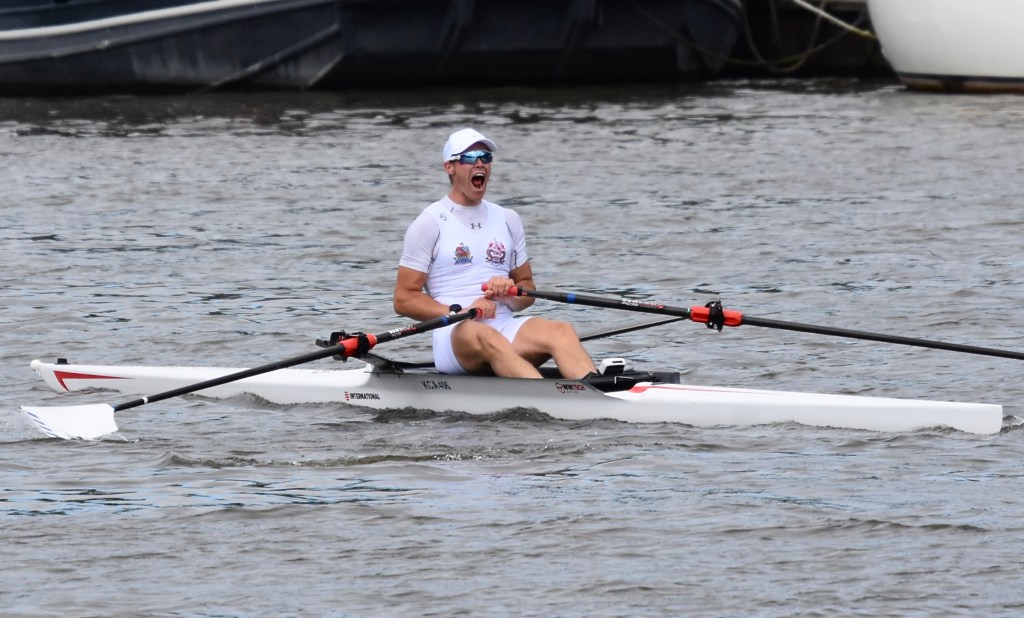
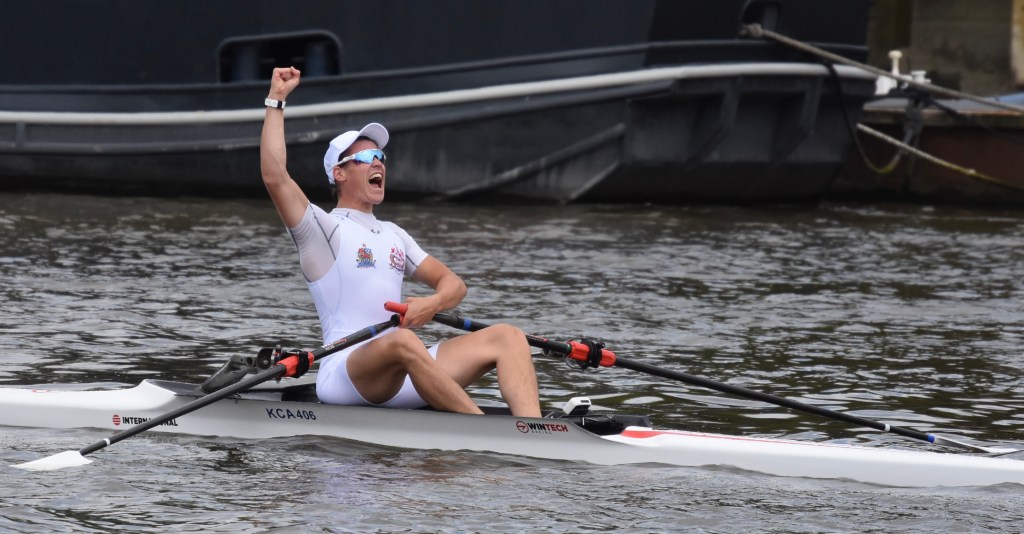
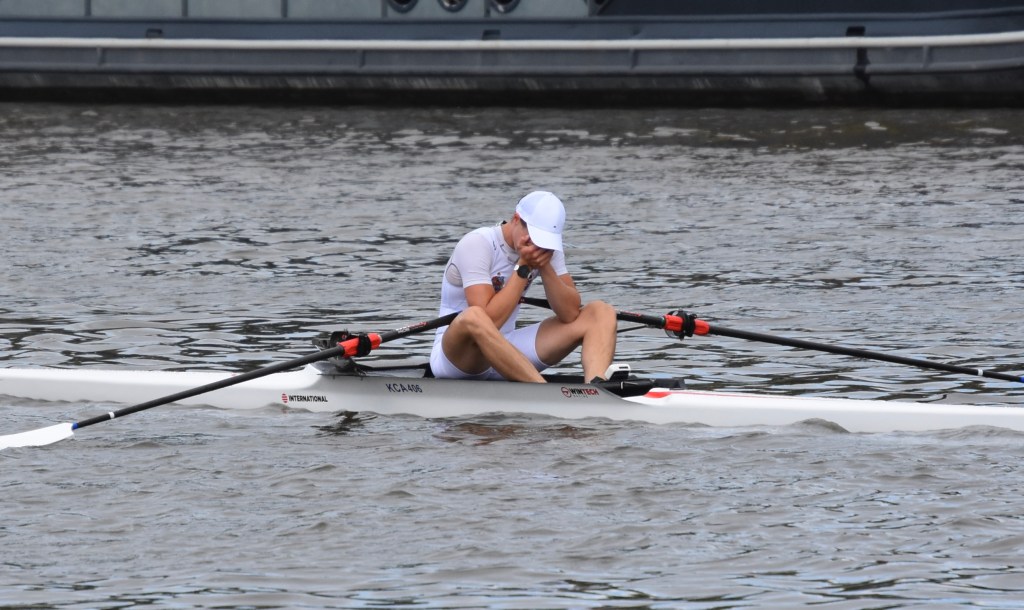
Max Carter-Miller’s time of 26 min 07 secs was not a true indication of the difference between the two men as the second placed sculler is usually washed down in the final stages by the following flotilla. The fact that this is all part of the tradition of Doggett’s is probably of little solace. Both George Gilbert and Coran Cherry finished upright and under their own power, an achievement by most standards, the former in 27 min 19 sec, the latter in 32 min.
